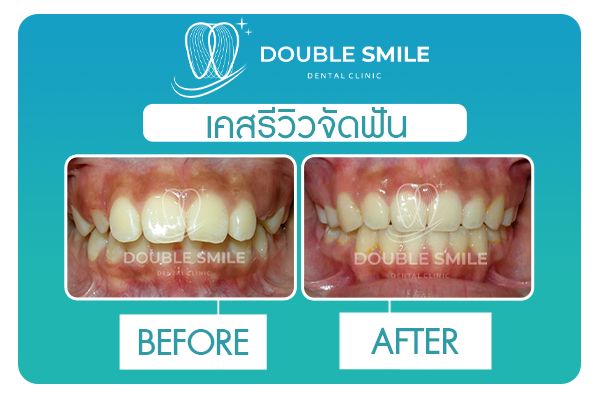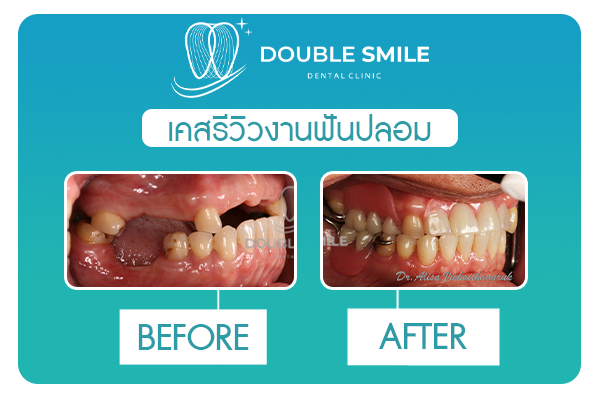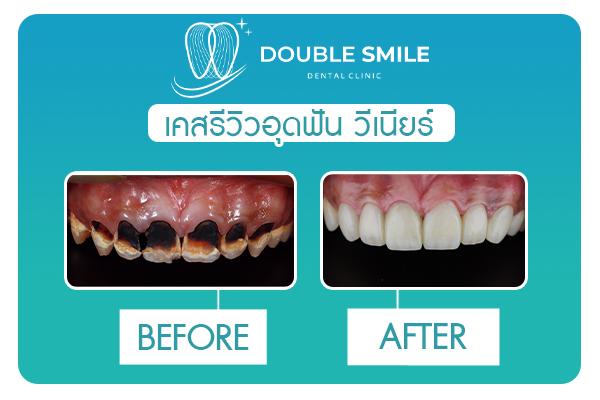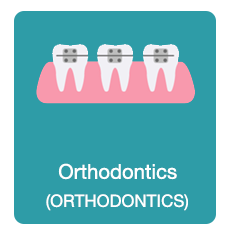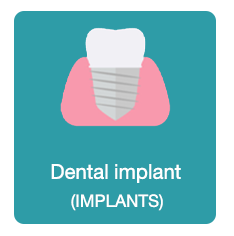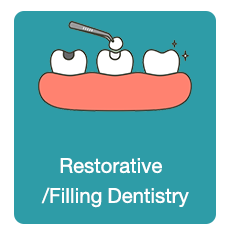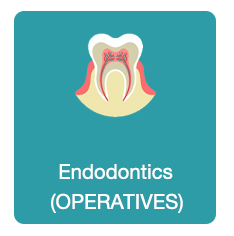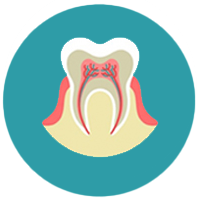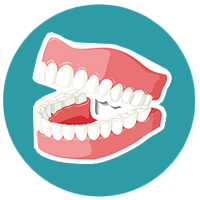Before & After
Dental implant (IMPLANTS)
Check out our services To receive services for your purposes We are ready to make your smile twice as confident.
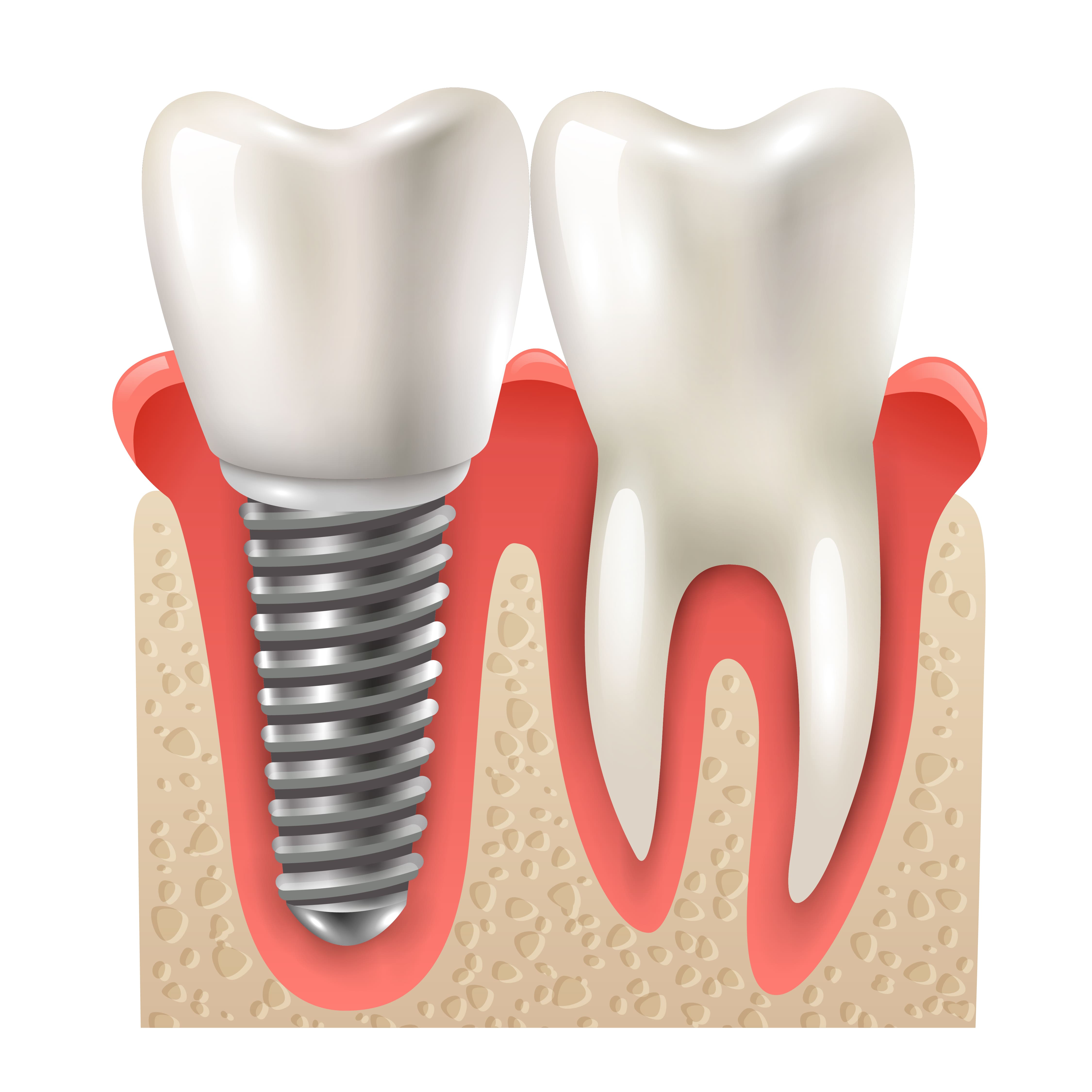
Dental implant (IMPLANTS)
Implants

- Before receiving dental implant treatment You must undergo a thorough examination and evaluation by a specialized dentist. or a specialist dentist To prevent problems that may arise from later treatment. In addition, expert dentists can choose the right implant for the patient. Have an understanding of the steps in prosthetic dentistry
- In the case that the patient has a congenital disease There are medications that must be taken regularly. Have a history of drug allergies You must inform your dentist before surgery.
- If you have a history of heart valve problems or artificial joint replacement Antibiotics may be necessary. Before treatment in some cases Therefore, you should inform the dentist in advance.
- Plan your treatment together with your dentist regarding the type of dental implant. or artificial teeth chosen for the treatment plan for effective treatment results
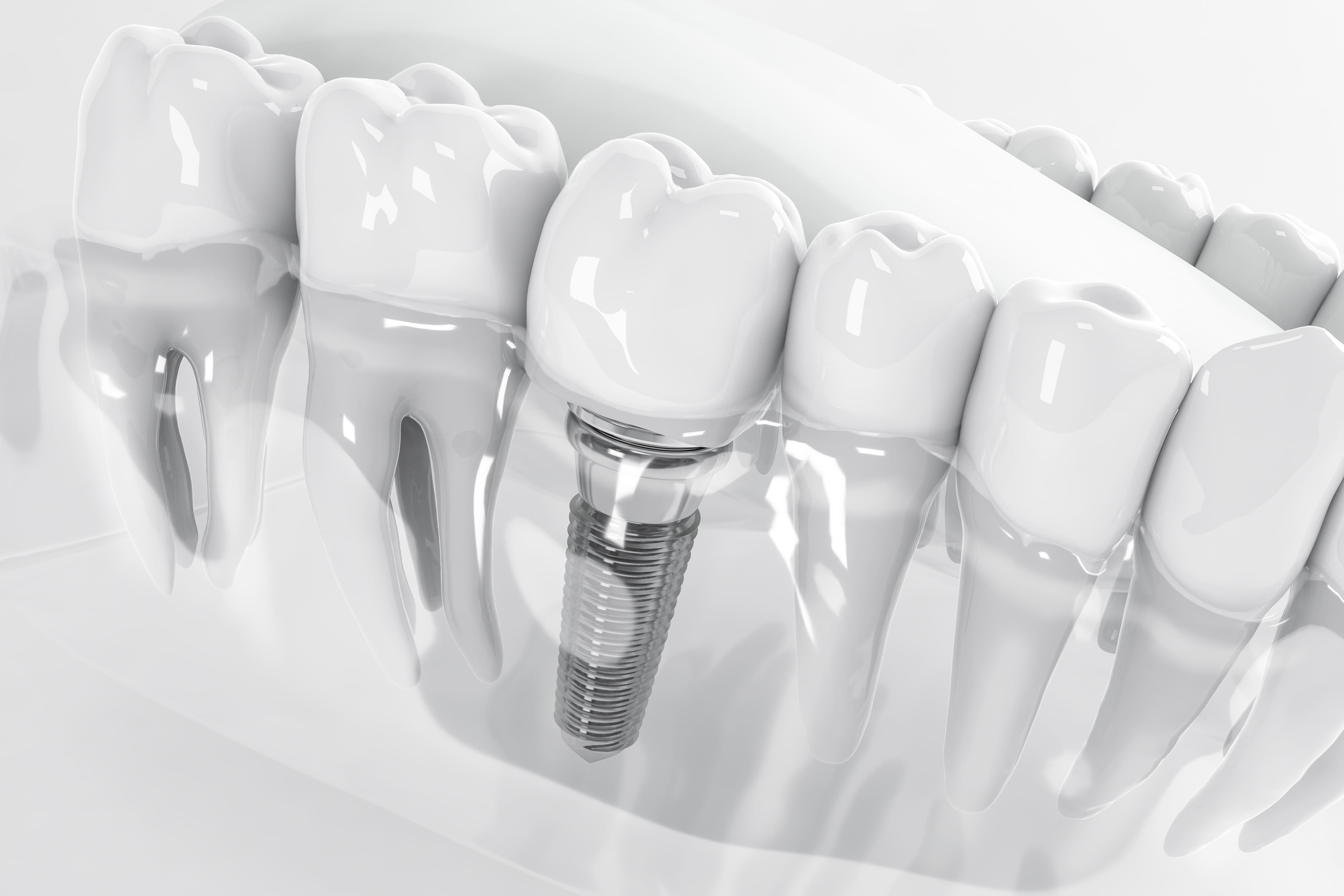
Immediate Loaded Implant
Connecting parts of dentures, such as making temporary or permanent crowns. After implants are placed in the jawbone area Immediate dentures are suitable for patients with good jawbone condition.
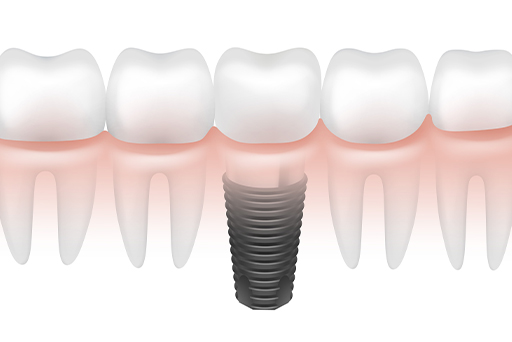
Immediate Implant
Immediate implant placement It only takes one day to transplant. Dental implants are placed at the same time after tooth extraction. Advantages of Immediate Transplantation that is, reducing the steps and treatment time causes bone dissolution and the chance of receding gums also decreases
Immediate implants are generally suitable for patients whose jawbone is in good condition. The ideal tooth locations for this method are the front teeth or premolars. There must be no pathology at the root tip of the tooth to be extracted. And there needs to be a sufficient amount of bone for the dental implant to attach to.
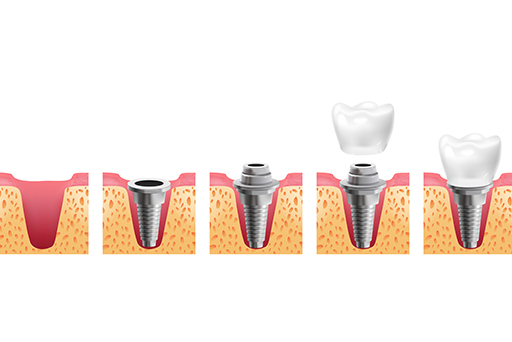
Conventional implant
Ordinary implant placement Can be used in patients who have root canal surgery on one tooth or multiple teeth. In this permanent tooth root restoration There are two stages of treatment: Once the dentist has placed the implant, they must wait for the bone to adhere to the implant, which takes approximately 3 months. After that, the denture can be attached to the implant.
This conventional transplant method is considered to have few treatment limitations. Able to treat all bone conditions But in cases where there is moderate to severe bone loss in the area where dental implants are to be placed The dentist will recommend a bone graft first.
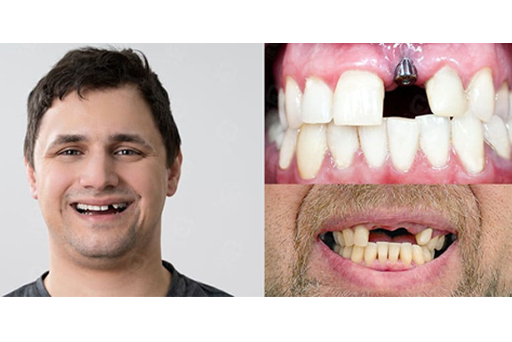
Who are dental implants suitable for?
- People who have lost permanent teeth from an accident
- People who have cracked or broken teeth that should have their teeth extracted by a dentist. and dental implants to replace lost teeth
- The gums in the area where the dental implant will be placed There is no inflammation or infection. This may result in the failure of the implant.
- People who have removable dentures but was not successful
- People who want to replace only one tooth The adjacent teeth are still in good condition.
- People who wear full dentures but experience the problem of the lower jaw bone collapsing significantly. Makes dentures fall out easily The implants will help hold the dentures more firmly.
- Those who do not want to have their teeth drilled for a fixed bridge.
- People who do not like to wear removable dentures
What are the procedures for dental implants?
Procedure for making dental implants Whether it is to replace one missing tooth or several teeth. There are main steps as follows:
- The dentist will carefully examine the condition of your mouth.
With panoramic X-rays and CT scans to evaluate the thickness of the jawbone and tissue on the gum line. Mouth impressions may be taken to plan treatment. and determine the appropriate position of the implant. - Preparing the area for implant placement
When implanting a tooth, the dentist will check the condition of the bone and for infections. To prepare the area suitable for dental implants If there is an infection, treatment must be done first. It may take from 2-3 weeks – 2 months.
If there is a condition where the bone structure is not sufficient for dental implants Additional bone grafting may be required first. In order for the treatment to be effective - Placing the implant
The dentist will inject local anesthesia. Then surgery is performed to place the implant into the jaw bone. The wound is closed with sutures. After approximately 7-14 days, the sutures will be removed. Wait another 3-4 months for the implant to be completely attached to the jaw bone. - Recovery period after implant surgery is complete.
The dental implants are fused with the jawbone. If the Immediate Implant is placed, you can proceed with the treatment according to step 5. In the case that the Immediate Implant is not placed immediately. You must wait 2 to 6 months for the implant to connect to the bone before proceeding with Step 5. 7 – 10 days after the stitches are removed, the dentist will make an appointment to remove the stitches.
How to care for teeth after dental implants
Period after new implants are implanted You should behave as follows.
- Eat only liquid food during the first day. To avoid food particles contaminating the wound Can eat semi-liquid food or crushed food during the following days
- Avoid biting or chewing hard or too sticky food for 1-2 months to prevent shock that will occur to the newly implanted implant.
- Avoid very hot or cold food or drinks for the first day after surgery.
- Swelling after surgery is normal. You can take the medicine you receive continuously to reduce inflammation.
- Avoid smoking and drinking alcohol.
- Patients can take care of and maintain the cleanliness of their teeth as usual. like natural teeth Brush your teeth the right way Use dental floss to get rid of food particles between your teeth.
- It is recommended to use an antiseptic mouthwash. As the doctor ordered
- See the dentist at every appointment. And follow your doctor’s advice regularly.
- If you have the habit of grinding your teeth or bruxism You should see a dentist to correct this condition.
Our Services





